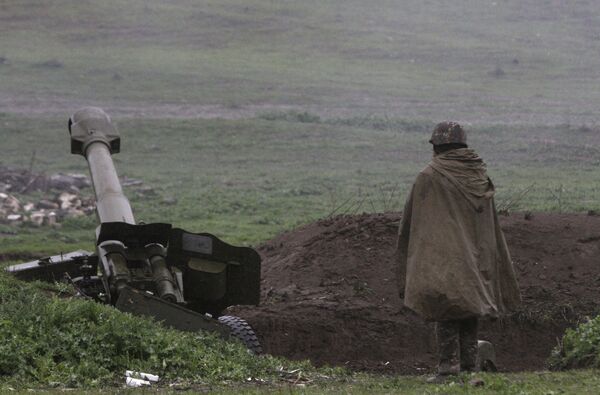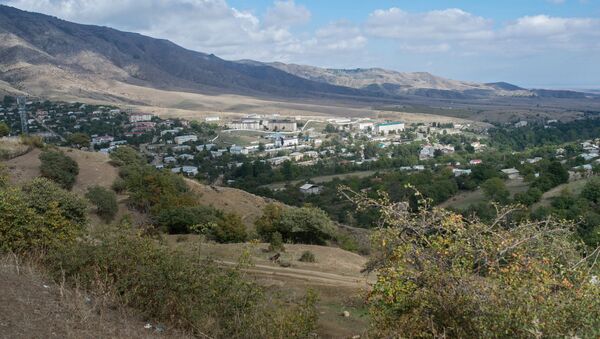Tensions over Nagorno-Karabakh have the "the potential to extend beyond the [disputed] region," Stratfor asserted, primarily referring to Russia and Turkey.
"Moscow does not want a full-scale war; if the Russians get drawn in further, Turkey will also be compelled to get more involved as well, working to balance against Russia in the Caucasus," the US-based think tank noted.
The first clashes, involving tanks, artillery and helicopters, took place on April 2. A day later Baku announced a unilateral ceasefire, but sporadic spouts of violence have been reported to be ongoing. Both sides blame each other for violating a fragile truce that was established by the Bishkek Protocol in 1994.

Russia has repeatedly called on both Yerevan and Baku to reach a peaceful settlement of the Nagorno-Karabakh conflict. Russian Foreign Minister Sergei Lavrov reiterated Moscow's stance on the issue on Monday.
"We expressed our concern [to Yerevan and Baku], reiterated [Vladimir Putin's] message regarding the need to immediately stop the ceasefire violations, and not to obstruct the path to resuming efforts towards peaceful conflict resolution. We hope that these appeals have been heard," Russia's top diplomat said.
Lavrov is scheduled to visit Baku on April 7 to meet with Iran's Foreign Minister Mohammad Javad Zarif and Azerbaijan's Foreign Minister Elmar Mammadyarov.


